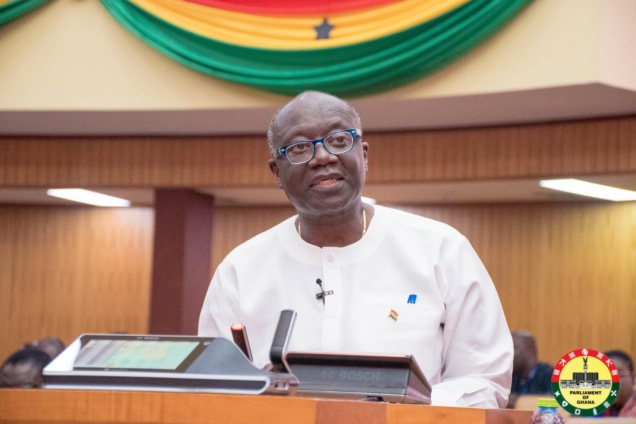An Economist has likened government's mood in the wake of an International Monetary Fund (IMF) Programme approval for Ghana to a couple on honeymoon.
Dr Sa-ad Iddrisu explained that the disbursement of the first of tranche of about $600 million to the Bank of Ghana seems to have engendered a sense of joy and a feeling that the country's problems are finally solved.
According to him, the country is about to get into the "real marriage", where it would have to make judicious use of the first tranche.
"Everything happening now is like a honeymoon period. When you're newly married, you're so excited, everything looks good and all that. That is what we're having now in Ghana.
"So let's see how we'll move from the honeymoon period to the real marriage. That is where the issues come in.
"Look at what is already happening in the Kumawu by-election. Definitely, there'll be financing going on and stuff like that. So can the government really commit to the fiscal discipline?" he said on JoyNews' AM Show on Monday.
The economist added that the recent appreciation of the cedi amidst the "honeymoon period" cannot necessarily be attributed to government's efforts but rather "speculations in the market."
"It's not like government has done anything as we speak," he added.
Following the approval of Ghana's $3bn bailout request and the subsequent disbursement of the first tranche, many individuals and experts have advised government not to jubilate just yet but focus on making good use of the funds.
Many have also criticised the government for making an IMF programme its primary solution whenever it finds itself in crisis given that the country heads back to a downturn once the programme expires.
Some say it is not as though the government does not know exactly what to do but it is a case of lack of political will and the resort to pursue initiatives that yield short-term results.
“So the issue is that it’s not like we don’t know what to do in this country. We know what to do but basically, it boils down mostly to the lack of political will most times and the fact that essentially, these structural reforms require a lot more time than a political cycle.
"So you see, the challenge we face is that we turn to try to quick fixes, short-term results to show that the government has done something.
“I can understand the position politicians are in because they are looking at the next election,” An Economist, Dr Priscilla Twumasi Baffour said on Newsfile on Saturday.
Latest Stories
-
EPA says lead-based paints are dangerous to health, calls for safer alternatives
1 hour -
Queenmother calls on President-elect Mahama to appoint more women in his government
3 hours -
Atletico Madrid beat Barcelona to go top of La Liga
4 hours -
Usyk breaks Fury’s heart with points win in rematch
4 hours -
Ghana-Russia Centre to run Russian language courses in Ghana
9 hours -
The Hidden Costs of Hunger: How food insecurity undermines mental and physical health in the U.S.
10 hours -
18plus4NDC marks 3rd anniversary with victory celebration in Accra
12 hours -
CREMA workshop highlights collaborative efforts to sustain Akata Lagoon
12 hours -
2024/25 Ghana League: Heart of Lions remain top with win over Basake Holy Stars
14 hours -
Black Queens: Nora Hauptle shares cryptic WAFCON preparation message amid future uncertainty
14 hours -
Re-declaration of parliamentary results affront to our democracy – Joyce Bawah
14 hours -
GPL 2024/25: Vision FC score late to deny Young Apostles third home win
14 hours -
Enhancing community initiatives for coastal resilience: Insights from Keta Lagoon Complex Ramsar Site Workshop
14 hours -
Family Health University College earns a Presidential Charter
15 hours -
GPL 2024/25: Bibiani GoldStars beat Nsoatreman to keep title race alive
15 hours

